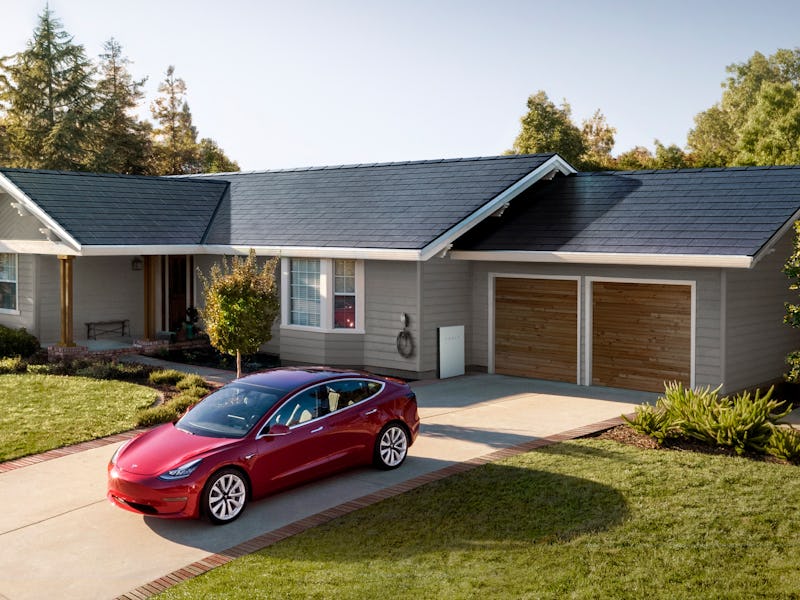Tesla Solar: Elon Musk has an ambitious target for clean energy business
Tesla has big plans for its clean energy business, and it could become surprisingly large over time.

Tesla's solar energy business could end up bigger than anticipated.
During the company's second-quarter 2020 earnings call last week, CEO Elon Musk outlined how the electric car company is taking further steps in its mission toward increasing the use of sustainable energy. Musk noted the company's home solar panels are available at a price of $1.49 per watt, and its grid-scale Megapack storage achieved its first quarterly profit just under a year after its initial announcement.
While these are impressive steps, and Tesla has eye-catching products like the Solar Roof tiles, the company is still better known for its electric vehicles like the Model 3 sedan. Musk went on to claim, however, that the solar business could ultimately end up about the same size as the automotive business:
"I think long term, Tesla Energy will be roughly the same size as Tesla Automotive. I mean, the energy business collectively is bigger than the automotive business."
It's a big mountain to climb. In the accompanying quarterly earnings report, Tesla revealed it earned $6 billion in revenue in the quarter. Of that figure, $5.2 billion was from its automotive business, while energy generation and storage accounted for just $370 million. While the energy business could one day count for 50 percent of Tesla's revenue, right now it counts for just six percent.
Tesla is taking several steps to make this a reality. Perhaps the most eye-catching is the home solar price cuts it announced last month. The company took several steps to reduce prices to one third below industry figures outlined by the Solar Energy Industries Association. It standardized sizes to reduce the need for consultation with customers over past use, offered a recommendation system to curious customers, and rolled out a digital platform that it claims helps reduce sales and marketing costs by 64 percent.
The end result is that a medium-sized 8.2-kilowatt system costs $16,000 before incentives. With federal tax credits factored in, the price drops to $11,840.
Tesla's new savings.
Tesla has also started seeing results from its Megapack, announced in July 2019, which aims to offer grid-scale energy systems a space-efficient means of storing solar energy for all times of day. The product offers 60 percent greater energy density when compared to its Powerpack predecessor. Musk explained in the call that the Megapack has achieved its first quarterly profit.
Musk's announcements come as signs show Tesla making big moves into energy. In May 2020, a report claimed that Tesla had applied for an electricity generation license in the United Kingdom. That same month, the company's renewable energy trading product Autobidder also emerged. The details suggest that, far from just making a solar panel that can charge its cars, Tesla is considering ways to make a serious long-term push into sustainable energy.
During the earnings call, Musk explained how these moves are all connected to the company's long-term vision:
"In order to achieve a sustainable energy future, we have to have sustainable energy generation, which I think is going to be primarily solar followed by wind. Those are intermittent, so you need to have a lot of batteries to store the solar energy, because the wind doesn't always blow and the sun doesn't always shine. So there's like three elements of the sustainable energy future: wind and solar sustainable energy generation, battery storage, and electric transport. Those three things. And the mission of Tesla is to accelerate sustainable energy."
The Inverse analysis – Tesla's energy business has made big headlines with eye-catching products like the Solar Roof, but its quarterly earnings show it remains a small slice of the company's overall earnings. Cheaper residential energy and more attractive grid storage could help increase the share.
Perhaps one area that could play a big role is in battery storage, that third part of Musk's formula. Tesla is scheduled to hold a battery day on September 15 where it will outline improvements in its technology. Although it's expected to offer big benefits for its electric cars, it could help make its clean energy solutions more attractive than ever.